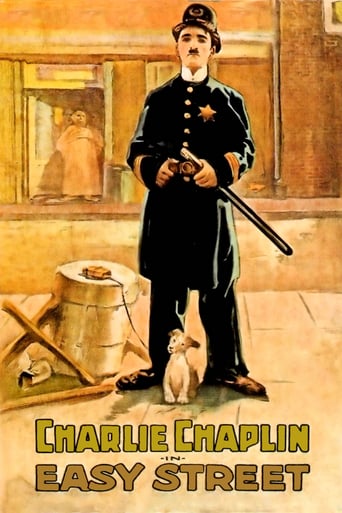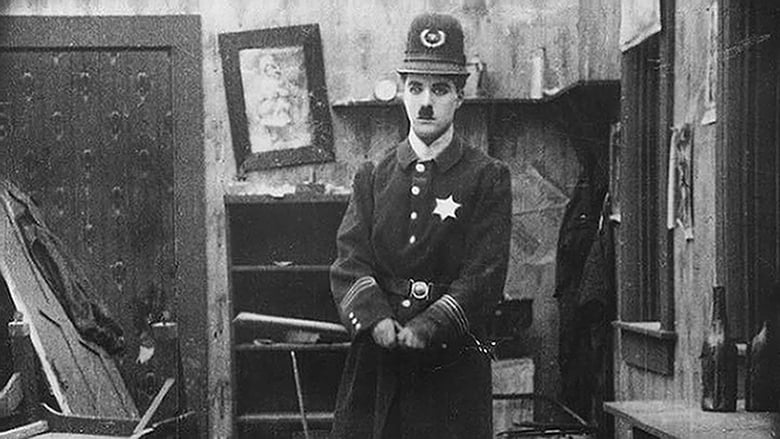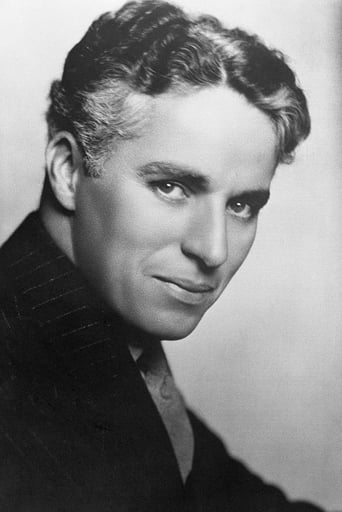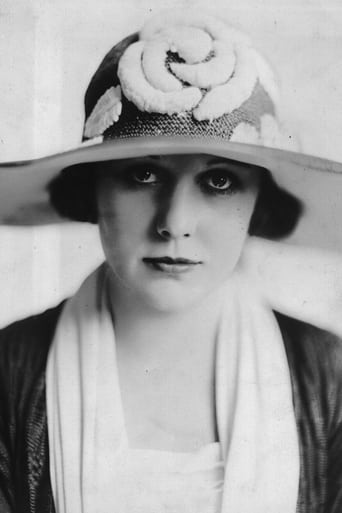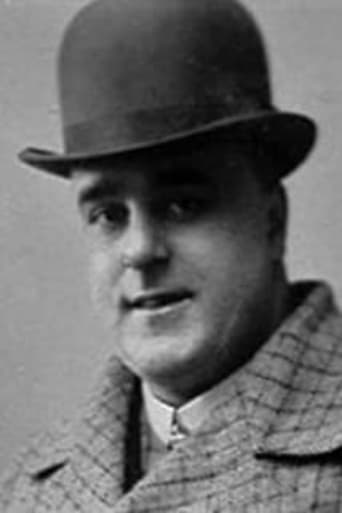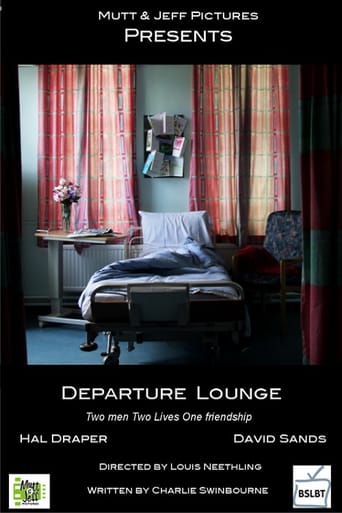Easy Street (1917)
A derelict, huddled under the steps of a missionary church, feels enlightened by the sermon of a passionate preacher and infatuated by the beauty of the congregation's pianist, in such a way that he tries to improve his life of poverty by becoming a policeman. His first assignment will be to patrol along Easy Street, the turf of a vicious bully and his criminal gang.
Watch Trailer
Free Trial Channels
Cast


Similar titles
Reviews
Truly Dreadful Film
A Disappointing Continuation
It's entirely possible that sending the audience out feeling lousy was intentional
Just intense enough to provide a much-needed diversion, just lightweight enough to make you forget about it soon after it’s over. It’s not exactly “good,” per se, but it does what it sets out to do in terms of putting us on edge, which makes it … successful?
Am a big fan of Charlie Chaplin, have been for over a decade now. Many films and shorts of his are very good to masterpiece, and like many others consider him a comedy genius and one of film's most important and influential directors. From his post-Essanay period after leaving Keystone, 'Easy Street' is among the very best of his early output, one of his best from his Mutual period and one of his first classics. As said with many of his post-Keystone efforts, it shows a noticeable step up in quality though from his Keystone period, where he was still evolving and in the infancy of his long career, from 1914, The Essanay and Mutual periods were something of Chaplin's adolescence period where his style had been found and starting to settle. Something that can be seen in 'Easy Street'. The story is more discernible than usual and is never dull, and does it while not being as too busy or manic.On the other hand, 'Easy Street' looks good, not incredible but it was obvious that Chaplin was taking more time with his work and not churning out countless shorts in the same year of very variable success like he did with Keystone. Appreciate the importance of his Keystone period and there is some good stuff he did there, but the more mature and careful quality seen here and later on is obvious.'Easy Street' is one of the funniest and most touching early efforts of Chaplin. It is hilarious with some clever, entertaining and well-timed slapstick and has substance and pathos that is very moving. It moves quickly and there is no dullness in sight. The second half is both hilarious and enchanting.Chaplin directs more than competently and the cinematic genius quality is emerging. He also, as usual, gives a playful and expressive performance and at clear ease with the physicality and substance of the role. The supporting cast acquit themselves well, particularly a charming Edna Purviance and their chemistry is sweet to watch. Eric Campbell is both amusing and formidable.In summary, terrific. 10/10 Bethany Cox
Monday September 24, 7:00 pm, The Paramount Theater A derelict (Charles Chaplin) visits the local rescue mission where he finds encouragement and resolves to make "A new beginning." Hired as a policeman at a stationhouse where street violence rages uncontrolled, he vanquishes an enormous bully (Eric Campbell), twice, restores civility to the neighborhood, and gains the respect of the beautiful mission worker (Edna Purviance). Easy Street is without question Campbell's best performance, as the rampaging monster and ultimate challenge to Charlie's survival. The ninth of Chaplin's twelve productions for the Mutual Film Corporation, Easy Street is among the most popular and best remembered. It was the last of the twelve produced on a monthly basis and came at a point in Chaplin's career when his working methods became increasingly meticulous and greater amounts of time were required to produce fewer films. Chaplin used nearly as much time to produce the final three films as the nine they preceded.
Mr. Chaplin,of course, had gotten his initiation into the Motion Picture Business with Mack Sennettat the Keystone Studio. The year was 1914 and Mack signed Charlie to a one year deal. Acting and physical comedy were all deeply embedded in the Chaplin personality as he had just about grown up on the stage. He had done a lot of different work, including the boy in the stage play, THE ADVENTURES OF SHERLOCK HOLMES.At the time of his discovery by Sennett (There was no American Idol Show then!)he had just finished a tour of the States in a show called, "A NIGHT IN THE English MUSIC HALL", which was called "THE MUMMING BIRDS" in Britain. He had a featured part in a sketch where he played an annoying Drunk.* Also in the show was a fellow Englishman by the name of Arthur Stanley Jefferson, a Red Headed lad who took the Stage Name of Stan Laurel.** After this first year in the Sennett Stable, the young Chaplin's stock had risen considerably. He had started out as mostly a supporting player and quickly moved up the ladder to featured comic. By the end of 1914,he was writing, directing and acting in front of the camera. Enter Essanay.The Essanay Film Manufacturing Corporation of Chicago was founded by partners George K.Spoor and G.M. Anderson(better known as Broncho Billy).*** The name is derived from the 'S' in Spoor and the 'A' in Anderson. Hence we get S and A, or the single name, "Essanay".Spoor and Anderson opened up their coffers in order to obtain the services of Charlie. He also got plenty of perks in the deal. He would essentially be his own boss, writing, directing, etc. hat was good for 1915, but what next? In 1917 the Chaplin show moved on. Now a fresh new deal was inked with 'The Little Tramp' late in '16. Mr. Charles Chaplin now had big buck$ in $alary, lot$ of ca$h for budgetary consideration and full artistic freedom. He could make his films as he wanted, taking whatever time needed, employing what methods he saw fit to use.All that resulted was a fabulous 12 two reel films, each one a gem. He had elevated the 2 reeler Comedy Short Subject to the level of most Feature Films. The films would be released as a production of Mutual's Lone Star comedies. Much like Jackie Gleason's HONEYMOONERS episodes of '50's Television fame, it is just about impossible to pick a favourite.EASY STREET has always been rated right up at the top of the bunch to this writer. In it the Little Tramp is seen as a "Derilict", living on 'Skid Row' and will do just about any thing. After meeting up with a lovely Mission Lady (Edna Purviance), Charlie is smitten and vows to make himself. As he leaves the Salvation Army-Type Rescue Mission, he even gives back the collection basket that he has stolen.The Tramp soon answers a 'Help Wanted' sign hanging on the local Police Station. Then for the remaining three quarters of this film we see a great variety of the finest mixtures of sight gags and true sentiment. He proves to be firm, yet charitable. His persona as a Police Officer is multi-faceted. He is not only the 'Man', or the 'Big Heat'.The sequence leading up to his tangling with the Bully of Easy Street (Eric Campbell) is a magnificently engineered gag upon gag, finally reaching a crescendo. And, just when victory seems to be at hand, the 'Problem' returns.The end of the film shows that Beat Cop Chaplin not only has been successful in 'cleaning-up' of Easy Street crime conditions, but also has done okay with the Mission Lady.Just as an after thought, in looking at this 1917 Comedy, we may very well have a glimpse into the heart and soul of The Little Trasmp. In his later years in the U.S.A., Mr. Chaplin came under suspicion for his Political Beliefs. This was the era of one Joe Stalin and the "Red Scare". Charles had gotten a reputation for his inquiry about radical or 'Un-American Idologies, not that he ever opened up his check book to Moscow or anything like that. Anyway as we all know, he was refused re-admission into the United States following a European trip in 1952.You see, Chaplin had never become a U.S. Citizen and had been classified as an "Undesirable Alien". He did not return until 20 years later when he received a Special Oscar at the 1972 Academy Awards.Examination of the Morale at the End of EASY STREET would seem to contradict the presence of any Communist sentiments. A very poetic Title Card tells of the need for both Social Compassion and a Law Abiding citizenry. It's there, honest! Just watch it! * Elements of his act a very much in evidence in many of his early films at Keystone, Essanay and Mutual.** Yes, that same guy who later gained immortality as 1/2 of the Film Comedy Team of Laurel & Hardy. Besides his own parts, Stan also understudied Charlie's Drunk Act.*** "Broncho Billy" was the first Western Hero on the screen. While Chaplin was at the Essanay Company, He appeared in a cameo shot in the G.M. Anderson, "Broncho Billy" film, HIS REGENERATION. Mr. Anderson reciprocated and was in a Chaplin CVomedy.
Easy Street starts with Charlie with as a poor, destitute tramp. After attending a storefront revival service, and meeting the always delightful Edna Purviance, he decides to turn his life around. He quickly gets a job as a policeman and he finds himself assigned to Easy Street, the worst neighborhood in the city ruled by tough Eric Campbell. Using his own unorthodox tactics, Charlie eventually subdues Eric and neighborhood and they all live happily ever after.Easy Street was one of the twelve films Chaplin made for Mutual. Mutual gave Chaplin unprecedented freedom and responded by giving them, overall, twelve of the best comedy shorts ever made. Easy Street is easily the best of them. It is a very funny short. This is the film I show when I want to introduce someone to Chaplin or silent films in general. The gags are inventive, and they are extremely well-played by his regular company of Mutual performers. Chaplin himself is at his best in this film, but where would he be without Eric Campbell, the best heavy he ever played against. (Sadly, Campbell would die in a car accident after the completion of the Mutual comedies. His loss would be felt in the First National comedies, which rarely reached the heights of the best Mutual work.)But there is more to Easy Street than laughs. It is unusually mature for a silent comedy of its period. Chaplin usually presented his tramp character as a happy-go-lucky figure - a vagabond by choice, not circumstance. This film starts with the tramp as a down-and-out character, much in need of the new beginning he gets at the mission. In perhaps his first attempt at social commentary, Chaplin provides an unblinking view of ills of the society of the time. The most graphic example is the drug addict shooting up with a needle. People often have a misconception of silent comedies being simply quaint. That isn't quaint. This is a must see.

